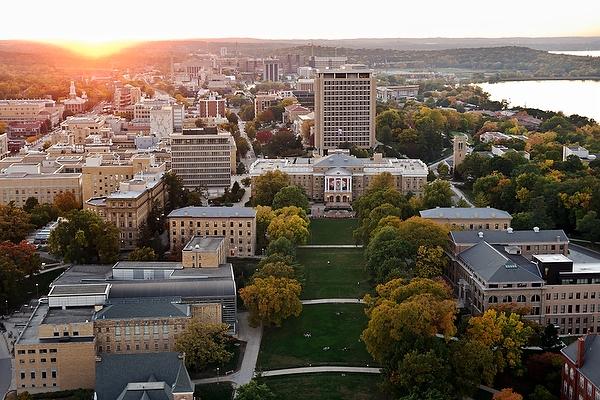A liberal arts education encompasses a broad range of enriching and eye-opening fields of study, including literature and world languages.
To earn a liberal arts degree is to graduate as a well-versed and aware member of society, which is of utmost importance in the inextricably connected world.
But today many college students must bare a constant psychological pressure embodied by the following question, posed by Sam Gee in The Badger Herald in his letter to the editor: “What do you want to do with your major?”
At the university level, specific tracks exist for engineering, medicine, business, etc. These tracks can mean rigorous courses and hours of memorizing organic chemical compounds.
In terms of the future, these majors may be associated with job security and financial stability.
“The rate of unemployment for a recent graduate with a humanities major is 1.7 percent higher than for a science major and 1.5 percent higher than for a business major,” Gee said in his letter to the editor.
Numbers, however, are not indicative of the value of a liberal arts degree.
Studying ancient philosophy is a cross-cultural means of examining the human experience. Studying medieval literature is an exploration of past written beliefs and values. And studying world languages is forging a connection with other human beings, cuisines and cultures.
The humanities are far-reaching. They allow us to understand ourselves in relatable and intuitive ways hard sciences cannot.
Our world is not getting any simpler. Technology will continue to ceaselessly advance. There is never a lull in the realm of politics.
Amidst this sea of constant change, we must seek to understand ourselves. We must seek to discover where we fit. A liberal arts education provides us with the tools to make this discovery.
By no means should a line be drawn between liberal arts and non-liberal arts students. But how can our worldviews be broadened without any study of the human culture?
For example, mathematics is beautifully descriptive, but we must also seek to understand the human mind that was inspired to explore numerical patterns and their relations to the natural world.
So, again, though the unemployment statistics may seem concerning, they do no justice to the true value of studying liberal arts at the university level. Of course, job security and financial stability are primary and serious concerns in today’s cutthroat job market.
In the workforce, having the freedom to make a living out of studying philosophy is not so common. But a liberal arts education is complementary.
It teaches us to consider the importance of seeking to understand our ever-changing surroundings before we obsess over the occupational implications of a specific major. This is invaluable insight.
Danny Walzer ([email protected]) is a sophomore majoring in Spanish and communication.














